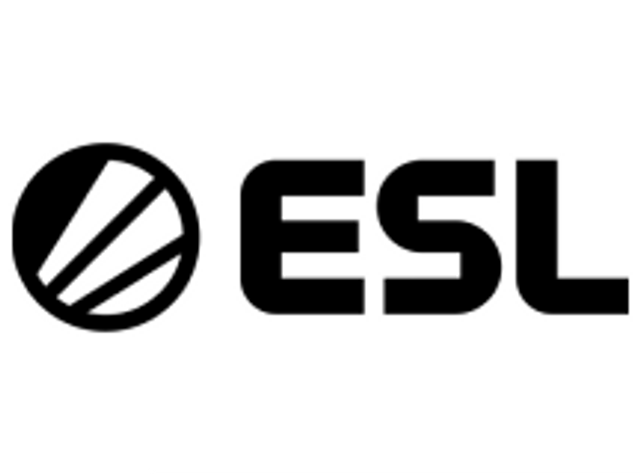Relying on DataStax for Critical Real-Time Global Gaming Service Delivery
ESL Gaming, the world's largest eSports network supports the most popular video games with high-profile, branded international leagues and tournaments. The company has supported the development of eSports for more than 20 years - its ESL Play service has more than 11 million members and has given out more than €7million in prizes. The ESL Gaming team wanted to move critical applications that supported the company’s user services and tournaments to the cloud. For ESL, working with DataStax was the obvious choice.

Products & Services
DataStax Astra DBIndustry
Media & Entertainment/Gaming
Location
Germany
Completed migration to cloud with support for critical use cases and services
Ensured successful deployment to Astra DB managed service, freeing up SRE team
Moved to Astra DB serverless, adopting ‘pay as you grow’ model that further reduces cost over time
Completed migration to cloud with support for critical use cases and services
Ensured successful deployment to Astra DB managed service, freeing up SRE team
Moved to Astra DB serverless, adopting ‘pay as you grow’ model that further reduces cost over time
Play is a serious business. Supporting the world’s largest gaming and eSports competitions is a huge undertaking. ESL Gaming leads the industry, supporting the most popular video games with high-profile, branded international leagues and tournaments, from international events for esports professionals through to grassroots competitions and festivals around everything gaming. The company has supported the development of esports for more than 20 years - its ESL Play service has more than 11 million members, and has given out more than €7million in prizes.
The ESL Gaming team wanted to migrate to the cloud. This included moving critical applications that supported the company’s user services and tournaments. These are based on the open source database Apache Cassandra™. For ESL, working with DataStax was the obvious choice.
The Challenge
The ESL Gaming technology team wanted to carry out a major cloud migration. While the company had some limited deployments in the cloud already, this move would involve migrating the company’s critical applications. This included the company’s database deployments, which support players in real-time.
Ben Burns, Vice President Technology at ESL Gaming, is responsible for all the technology that supports the company’s online gaming products, from engineering and infrastructure through to security. He is one of the primary stakeholders for the cloud migration project. Alongside Ben, Felix Feinhals, the head of Site Reliability Engineering at ESL Gaming, is the SRE Lead on the project.
“As an industry, gaming is growing massively. Our data has to be fast to meet their expectations - gamers expect their experience during a tournament to be as strong as any other time they play, if not better. We have to support services that are continuously available and deliver results in real time,” commented Burns. “We had to move our Cassandra database instances and our applications to the cloud, and we wanted to adopt a managed service rather than operating the clusters ourselves like we had in the past, in our own co-located data center. To make the right decision, we decided to look at the various cloud services and options available to us,” he continued.
The team at ESL Gaming was familiar with the cloud, and initially considered how a cloud provider service might be suitable. However, the company used some more advanced features in Cassandra that were not readily available in the versions that were on the market. “We make use of Time To Live (TTL), which governs how long user data exists before it is deleted, and Materialized Views, which speeds up reading data at scale. However, the cloud providers did not support these features. We would either have to carry out significant application rewrites, or we would have to implement a service that we ran ourselves. Then we looked at DataStax,” said Feinhals.
The Solution
DataStax Astra DB is a cloud-based database-as-a-service built on Cassandra. Unlike many other cloud options that deliver services that claim to be compatible with Cassandra but that have a different back-end and use APIs to deliver a service, Astra DB provides a full version of Cassandra. Importantly, Astra DB delivered the advanced functionality support that ESL Gaming required around TTL and Materialized Views.
Burns was introduced to DataStax, and immediately engaged with the service and engineering teams around the company’s needs. “Right from the start, we got really solid support from DataStax, and we were able to jump into our migration planning. We needed some extra support and the whole team was right there, from engineering through to management. We got the feeling that everyone received this support too,” said Burns.
One of the challenges that Feinhals and his SRE team wanted help with was how to manage Cassandra over time. The move to a managed service would help with this, as well as freeing up team resources to work on other high value work. “Previously, we had been using Cassandra internally, and we managed our own clusters. This meant keeping them up to date when new versions came out, which was a significant overhead. The DataStax team went through this with us as part of our evaluation, which accelerated the decision process. We definitely made the right choice to work with them,” commented Feinhals.
“The sun never sets when it comes to gaming - our services have to be available and they have to perform, so our approach to data has to be fast and reliable at a massive scale. Apache Cassandra supports our most critical fast data applications and services for players. We chose DataStax to help us migrate to the cloud. Astra DB means that we have the best possible managed service for our use cases, so that we are able to maintain availability, and focus on providing the best possible experience for players.”
The Results
Working with DataStax, Feinhals and the SRE team implemented their clusters on Astra DB and completed the migration as part of the company’s overall move to the cloud. “This move was a massive project for the company as a whole, and it represented a significant portion of our engineering team’s work for the past year. These applications are critical to how we run as a business, so we had to get the migration right. I’m pleased to say it was a resounding success internally, and DataStax played a key role in making it a success. Moving to Astra DB went smoother than expected; in the overall migration, our data was one less thing to worry about,” said Burns.
Following the initial move to a managed service, ESL Gaming then investigated the new Astra DB serverless launch. This offered the same fully managed Cassandra service, but based on a ‘pay as you grow’ model where customers only buy what they need, rather than on estimates of data growth. “After our first migration was successful, we looked at serverless as it could help reduce our costs over time as well as providing the automated service we needed. We migrated over in October 2021, and the shift was completed successfully. It just works,” commented Feinhals.
The team at ESL Gaming will now support the company’s expansion of its services based on data, powered by DataStax. “In the gaming sector, you have to be available 24/7, and you have to be fast. While we have a large deployment in terms of size, what really matters to us is the stability, integrity and availability of that data, as we have to support millions of users around the clock and around the world. Our operations - and our business - rely on Cassandra and DataStax,” concluded Burns.
About DataStax
DataStax is the open, multi-cloud stack for modern data apps. DataStax gives enterprises the freedom of choice, simplicity, and true cloud economics to deploy massive data, delivered via APIs, powering rich interactions on multi-cloud, open source and Kubernetes.
DataStax is built on proven Apache Cassandra™, Apache Pulsar™ streaming, and the Stargate open source API platform. DataStax Astra is the new stack for modern data apps as-a-service, built on the scale-out, cloud-native, open source K8ssandra.
DataStax powers modern data apps for 500 of the world’s most demanding enterprises including The Home Depot, T-Mobile, Intuit and half of the Fortune 100.


